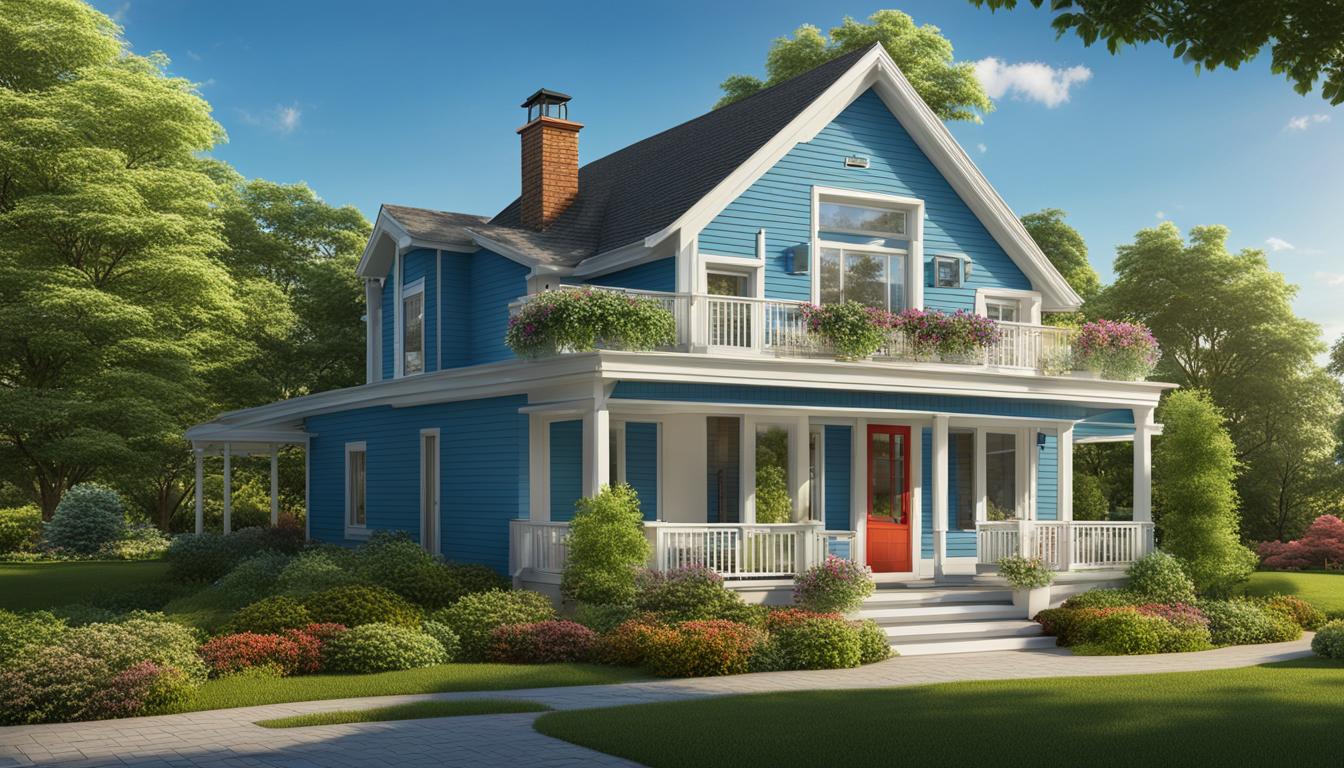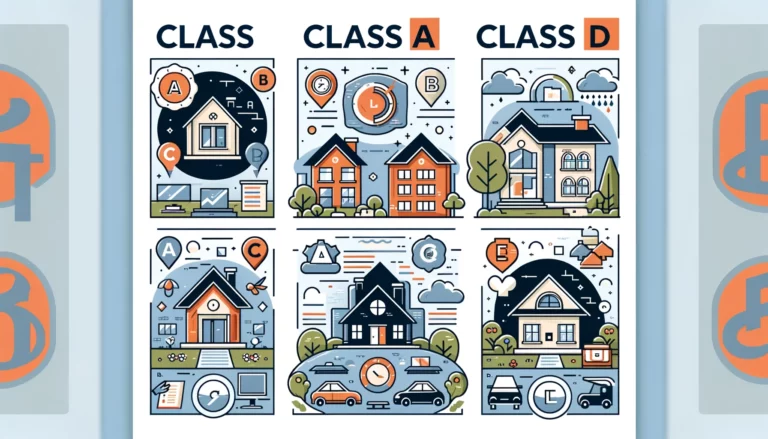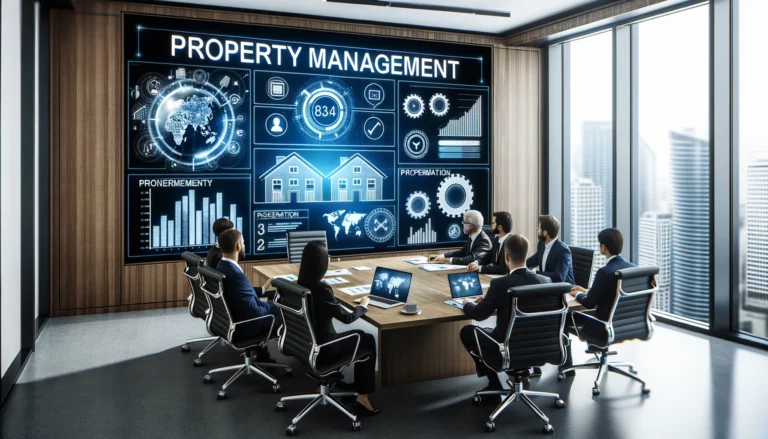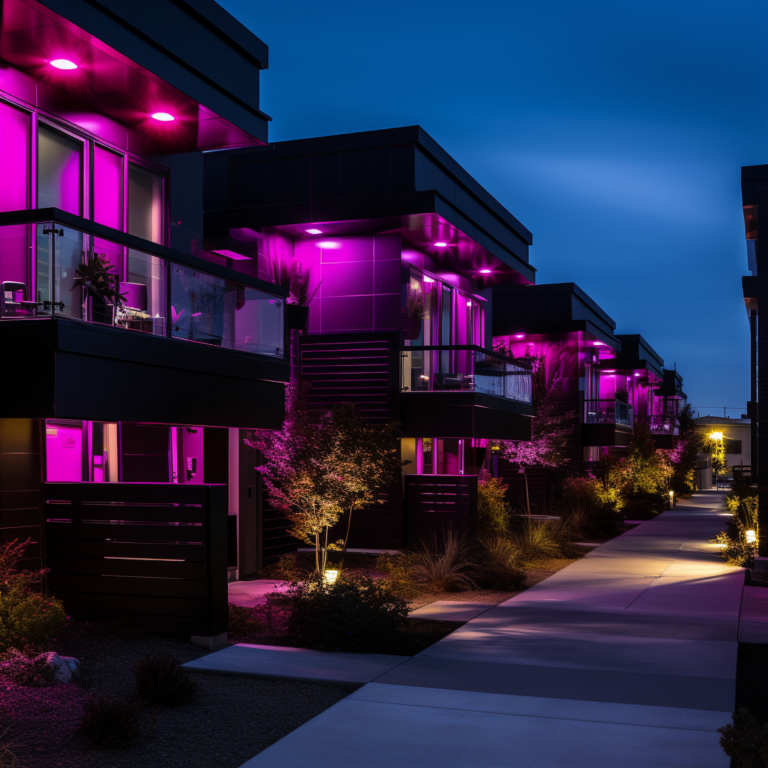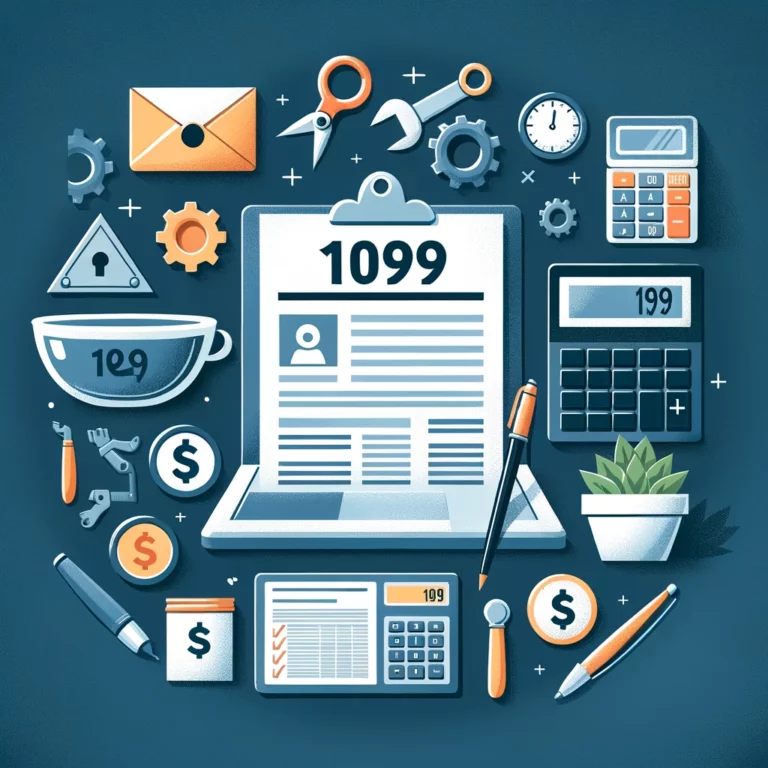Expert Tips for Efficient Rental Property Maintenance
As a rental property owner, maintaining your property is crucial for preserving its value, attracting quality tenants, and ensuring high return on investment. Efficient rental property maintenance involves implementing best practices to keep your property in top condition while minimizing costs and ensuring tenant satisfaction.
In this section, I will share expert tips and strategies for efficient rental property maintenance. With these insights, you can create a comprehensive maintenance plan that covers both the exterior and interior of your property, handles repairs and emergencies effectively, conducts regular inspections, and implements preventive maintenance strategies.
Key Takeaways:
- Efficient rental property maintenance is crucial for preserving the value of your property and maximizing your return on investment.
- Creating a comprehensive property maintenance checklist can help you stay organized and ensure that all essential maintenance tasks are covered.
- Regular inspections are essential for identifying potential maintenance issues before they escalate and create more significant problems.
- Preventive maintenance strategies, such as regular HVAC servicing, cleaning gutters, and changing filters, can save you time and money in the long run.
- Budgeting for property maintenance is essential to avoid unexpected expenses and make informed decisions about allocating funds for maintenance and repairs.
Importance of Rental Property Maintenance
As a landlord, it’s essential to prioritize property maintenance services to ensure that your rental property is in top condition. Regular rental property repairs and upkeep not only preserve the value of your investment but also attract quality tenants who will pay top dollar to live in a well-maintained home.
Here are three reasons why property upkeep is essential:
1. Avoid Costly Rental Property Repairs
Regular property maintenance services help you identify potential issues early on, preventing costly repairs down the line. By addressing small problems quickly, you can save money on rental property repairs and keep your property in excellent condition.
2. Preserve Property Value with Property Upkeep
Property value is directly related to upkeep. Neglecting rental property maintenance can lead to significant problems that could reduce your property’s overall value.
Investing in maintenance services can prevent this from happening. By staying on top of repairs and upkeep, you can preserve your property’s value and grow your real estate investment portfolio over time.
3. Satisfied Tenants with Efficient Rental Property Maintenance
Efficient rental property maintenance can help you keep tenants happy and satisfied. When tenants feel that their rental property is cared for, they are more likely to renew their lease and recommend your rental property to their friends and family.
Keeping tenants satisfied is essential to maintaining a steady rental income and maximizing your rental property investment’s returns.
Conclusion
Property maintenance services are a crucial investment for every landlord. By prioritizing regular upkeep and repairs, you can prevent costly repairs, preserve property value, and keep tenants happy and satisfied.
Creating a Property Maintenance Checklist
As a landlord, it can be challenging to keep track of every maintenance task that your rental property requires. However, by creating a comprehensive property maintenance checklist, you can stay organized and ensure that all necessary tasks are completed efficiently.
Identifying Key Maintenance Areas
The first step in creating your property maintenance checklist is identifying the key areas that require maintenance. A comprehensive checklist must cover both interior and exterior maintenance and include everything from routine tasks like changing air filters to more complex projects like repairing broken appliances.
To ensure that your checklist covers all the essential areas, consider breaking it down into the following categories:
- Exterior Maintenance
- Interior Maintenance
- Appliance Maintenance
- Regular Inspections
Outlining Specific Tasks
Once you’ve identified the maintenance areas, the next step is to outline specific tasks for each category. For example, in the exterior maintenance section, you may want to include tasks like:
| Exterior Maintenance | Task |
|---|---|
| Landscaping | Regular lawn mowing, trimming bushes, and tree pruning |
| Roofing | Inspection of the roof for damages and debris removal |
| Painting | Exterior painting to prevent damage due to harsh weather conditions |
In addition to outlining specific tasks, it’s essential to include timelines and deadlines for each task. This will help you keep track of what needs to be done and when, ensuring that you don’t miss any critical maintenance deadlines.
Addressing Emergencies
While preventive maintenance is crucial, emergencies can still happen. Therefore, it’s essential to include emergency procedures in your property maintenance checklist. You may want to include an emergency contact list and instructions for tenants on what to do in case of an emergency.
Remember to review and update your property maintenance checklist regularly to ensure that it’s up-to-date and relevant.
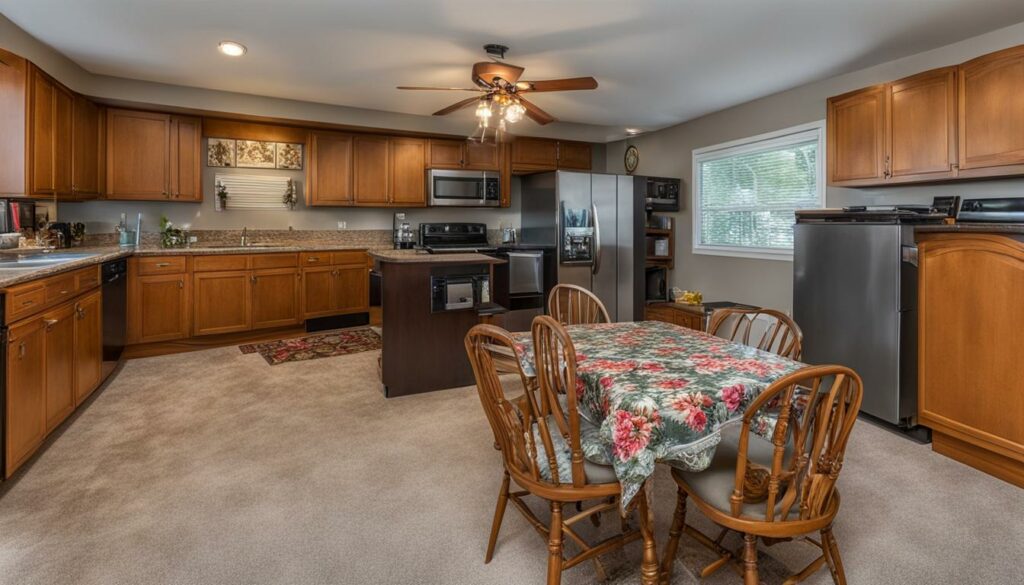
Remember to keep detailed records of all maintenance and repairs done on your rental property. Organizing your records will help you stay on top of essential tasks and can be used to prove that you have provided proper upkeep in the event of any disputes with tenants.
Handling Repairs and Emergencies
As a rental property owner, it’s essential to have a plan for handling repairs and emergencies. Promptly addressing maintenance requests and issues will not only keep your tenants happy but also preserve the value of your property. In this section, I will provide tips on how to effectively manage rental property repairs and emergencies.
Communicate with Tenants
Open communication with tenants is crucial for addressing maintenance issues effectively. Encourage your tenants to report any maintenance issues promptly. Provide them with clear instructions on how to report their requests, such as an online form or dedicated phone number.
When a maintenance request is submitted, respond promptly and provide an estimated timeline for completing the repairs. Keep your tenants informed throughout the process so that they feel valued and heard.
Hire Reliable Contractors
When handling property repairs, it’s crucial to work with reliable contractors. Do your research before hiring anyone and ensure that they have the necessary licenses and insurance coverage. Check online reviews and ask for references to validate their reputation and reliability.
Building a strong relationship with your contractors is essential for effective property management. Ensure that they understand your expectations and standards for maintenance and repairs. This will help you to build a trusted network of reliable contractors to call on for future maintenance needs.
Create a System for Maintenance Requests
Establishing a system for handling maintenance requests can help streamline the process and ensure that all issues are addressed efficiently. Consider using property management software to track requests and maintenance tasks. This will help you stay organized and ensure that nothing falls through the cracks.
When creating a maintenance request system, it’s important to prioritize issues based on their severity. This will help you to handle emergencies promptly while ensuring that less critical issues are addressed in a timely manner.
Conclusion
Handling repairs and emergencies can be challenging, but with the right strategies in place, you can manage them effectively. By communicating with your tenants, hiring reliable contractors, and creating a system for maintenance requests, you can ensure that your property is well-maintained and your tenants are satisfied.
Regular Inspections
Regular inspections are essential to ensure that your rental property is in top condition and identify potential maintenance issues early on. Property maintenance services experts recommend conducting inspections at least twice a year, ideally before and after each tenant occupies the property.
During each inspection, I create a detailed checklist that covers all areas of the property, including the exterior and interior. I check for any signs of wear and tear, damage, or potential safety hazards.
When conducting an inspection, Property management is critical to ensure that all areas of the property are thoroughly checked. I begin with the exterior, examining the roof, gutters, windows, and doors. I check the condition of the lawn, landscaping, and any outdoor structures, such as sheds or fences.
Next, I move inside, checking the walls, ceilings, and floors for any cracks, holes, or damage. I examine the plumbing and electrical systems and test all appliances to ensure they are in working order. Finally, I check each room for any signs of wear and tear, such as worn carpet or peeling paint.
Inspection Checklist Example
| Exterior | Interior |
|---|---|
| Roof | walls, ceilings, and floors |
| Gutters | Appliances |
| Windows and doors | Plumbing and electrical |
| Landscaping and lawn | Room conditions |
Regular inspections provide peace of mind and ensure that any maintenance issues are dealt with promptly. As a property owner, it’s crucial to stay proactive and address any issues that arise promptly. By doing so, you can keep your rental property in top condition and maintain tenant satisfaction.
Preventive Maintenance Strategies
Preventive maintenance is a key aspect of rental property care. By taking a proactive approach to maintenance, you can prevent small issues from becoming costly and time-consuming repairs. Here are some preventive maintenance strategies to consider:
Annual HVAC Servicing
Properly functioning HVAC systems are essential for keeping your tenants comfortable. Schedule annual HVAC servicing to ensure that your system is running efficiently and to identify any potential issues. Clean or replace filters regularly to improve indoor air quality and reduce energy consumption.
Clean Gutters
Regular gutter cleaning is necessary to prevent water damage to your rental property and maintain curb appeal. Clogged gutters can lead to roof leaks, foundation damage, and even pest infestations. Depending on the location and number of trees around your property, you should aim to clean gutters seasonally or at least biannually.
Seal Windows and Doors
Leaking windows and doors can result in higher energy bills and uncomfortable indoor temperatures. Inspect the caulking and weatherstripping around windows and doors and replace any damaged or worn-out seals. Proper sealing will improve energy efficiency and reduce drafts.
Inspect for Pest Infestations
Pests can cause significant damage to rental properties and compromise the health and safety of tenants. Regular inspection for pest infestations can help you identify potential issues before they escalate. Schedule regular professional pest control services and educate tenants on how to prevent infestations.
Regularly Test Smoke and Carbon Monoxide Detectors
Smoke and carbon monoxide detectors are essential safety features in rental properties. Test these devices monthly to ensure that they are working correctly and replace batteries annually. This simple step can save lives and minimize damage in the event of an emergency.
By implementing these preventive maintenance strategies, you can minimize risks, save time and money, and keep your rental property in excellent condition.
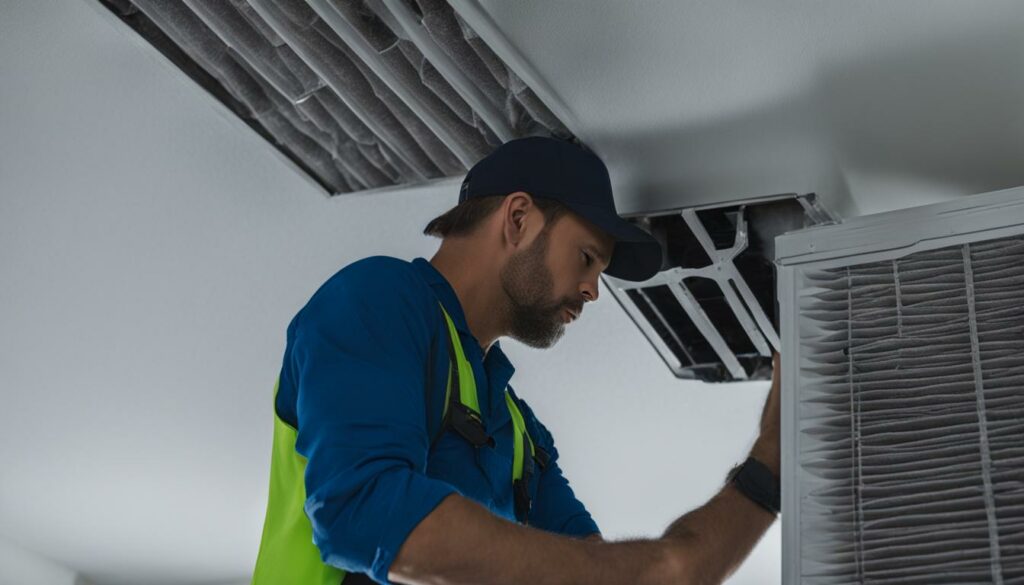
Budgeting for Property Maintenance
Allocating a budget for property maintenance is essential for any landlord looking to preserve the value of their investment and ensure tenant satisfaction. In this section, I will provide some insights on how to budget effectively and make informed decisions about allocating funds for maintenance and repairs.
Assess Your Property Needs
The first step in creating a budget for property maintenance is to assess your property’s needs thoroughly. This includes identifying any existing maintenance issues that need immediate attention and estimating the cost of addressing these problems. Once you have identified these needs, you can create a budget to cover these expenses and allocate any remaining funds for preventive maintenance measures.
Consider Hiring a Property Management Company
Another effective way to budget for property maintenance is to hire a property management company. These companies offer a range of services, including preventative maintenance, emergency repairs, and routine upkeep, to ensure your property remains in top condition. By outsourcing your property maintenance needs to a professional company, you can save both time and money in the long run.
Create an Emergency Fund
It’s always important to have a contingency plan in place for unforeseen maintenance and repair needs. Creating an emergency fund specifically earmarked for these expenses is an excellent way to ensure you always have the necessary funds to address any urgent issues as they arise. Ideally, this fund should contain enough money to cover three to six months’ worth of maintenance and repair expenses.
Track Your Expenses
Finally, tracking your property maintenance expenses is critical in making informed decisions about budgeting for future needs. By keeping detailed records of all maintenance and repair expenses, you can identify any patterns or areas where you may be overspending. These insights can help you adjust your budget accordingly and ensure you are making the most effective and efficient use of your available funds.
By following these budgeting tips and allocating funds for property maintenance and repair needs, you can ensure the longevity and success of your rental property investment. Remember, preventive maintenance is always more cost-effective in the long run than waiting until problems escalate, so it’s essential to allocate sufficient funds for regular upkeep and repairs.
Conclusion
As a professional copywriting journalist, I have shared my expert tips and best practices for efficient rental property maintenance. By implementing these strategies, you can ensure high ROI and tenant satisfaction.
Remember, proper maintenance is critical to preserving the value of your property and attracting quality tenants. It’s essential to create and follow a comprehensive property maintenance checklist, conduct regular inspections, and implement preventive maintenance strategies.
Handling repairs and emergencies promptly and effectively is also crucial, so make sure to establish a reliable system for addressing tenant maintenance requests and hiring trustworthy contractors.
Allocating a budget for property maintenance is essential to avoid unexpected expenses and make informed decisions about allocating funds for maintenance and repairs.
In conclusion, efficient rental property maintenance requires dedication and attention to detail, but it’s well worth the effort. Implementing a well-designed maintenance plan will not only preserve the value of your property but also enhance your reputation as a reliable and proactive landlord.
FAQ
What are some expert tips for efficient rental property maintenance?
Efficient rental property maintenance involves regular inspections, preventive maintenance strategies, and prompt handling of repairs and emergencies. It’s also important to create a comprehensive property maintenance checklist and allocate a budget for maintenance expenses.
Why is rental property maintenance important?
Rental property maintenance is important for preserving the value of your property and attracting quality tenants. Proper maintenance, including regular repairs and upkeep, ensures tenant satisfaction and maximizes return on investment.
How do I create a property maintenance checklist?
To create a property maintenance checklist, start by identifying all the essential maintenance tasks for both the exterior and interior of your rental property. Include tasks such as landscaping, façade upkeep, plumbing and electrical maintenance, and addressing common wear and tear. Regular inspections will help you identify additional tasks specific to your property.
What are some exterior maintenance tips for rental properties?
Exterior maintenance tips for rental properties include maintaining the landscaping, regularly inspecting and repairing the façade, and conducting regular inspections to identify potential issues. It’s important to address any necessary repairs promptly to prevent further damage.
How can I ensure proper interior maintenance for my rental property?
Proper interior maintenance for your rental property involves regular plumbing and electrical maintenance, addressing common wear and tear, and conducting inspections to identify any potential issues. Responding promptly to tenant maintenance requests is also crucial for tenant satisfaction.
How should I handle repairs and emergencies in my rental property?
To handle repairs and emergencies effectively, maintain open communication with your tenants and respond promptly to their maintenance requests. Hire reliable contractors for repairs and emergencies, and establish a system for addressing and prioritizing maintenance issues based on urgency and severity.
Why are regular inspections important for rental properties?
Regular inspections are important for rental properties as they help identify potential maintenance issues before they escalate. Inspections also allow you to assess the overall condition of the property and address any necessary repairs or maintenance tasks promptly.
What are some preventive maintenance strategies for rental properties?
Preventive maintenance strategies for rental properties include regular HVAC servicing, cleaning gutters, changing filters, and inspecting and maintaining the property’s systems and appliances. By addressing potential issues proactively, you can avoid costly repairs and ensure the longevity of your rental property.
How should I budget for property maintenance?
To effectively budget for property maintenance, allocate a portion of your rental income specifically for maintenance expenses. Consider factors such as the age and condition of your property, the number of units, and the average cost of repairs and replacements in your area. It’s also wise to have a contingency fund for unexpected maintenance needs.
